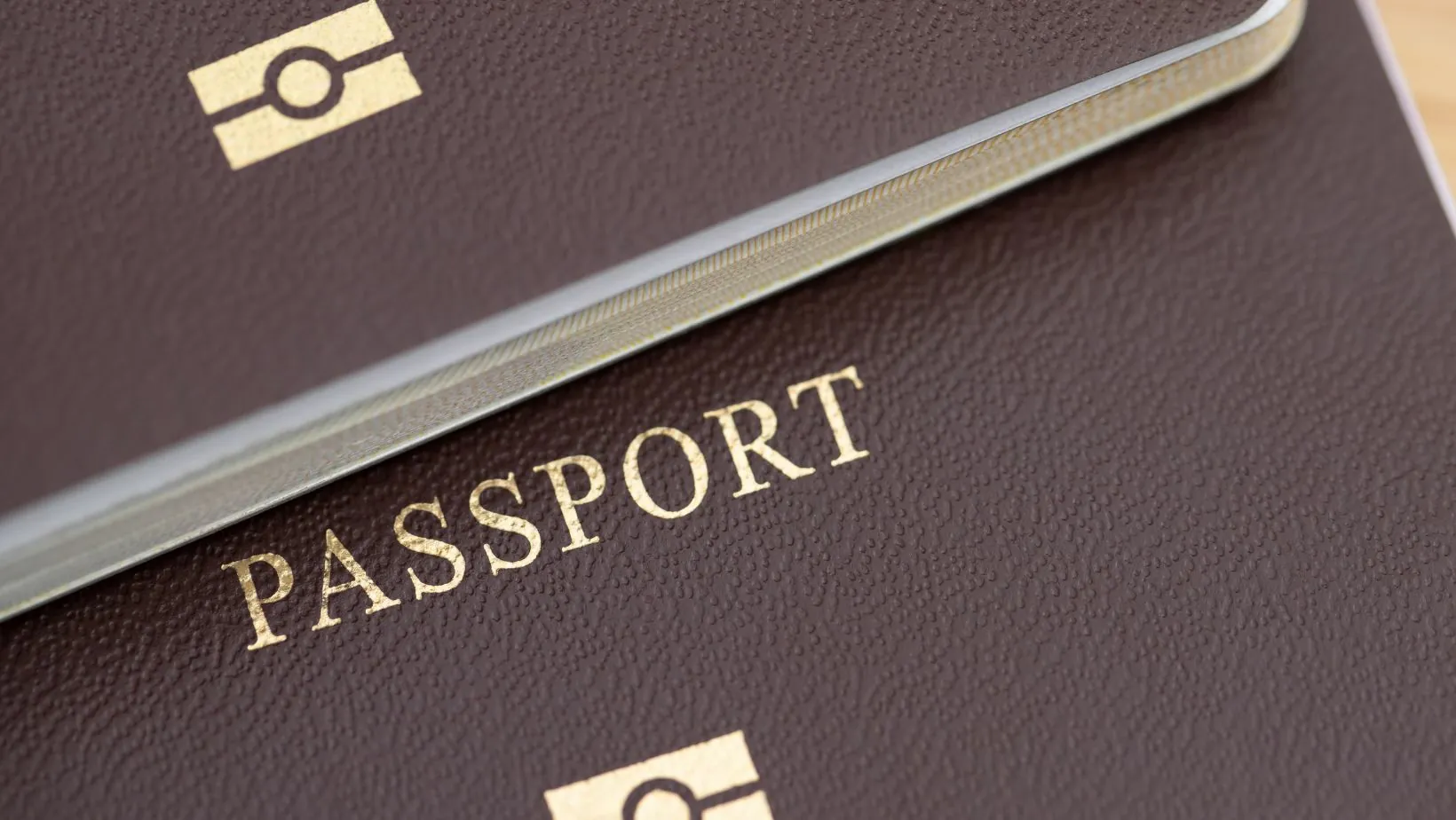Ever received a call from 1-800-465-3863 and wondered if you should pick up? You’re not alone. This mysterious number has been popping up on caller IDs across the country, leaving many scratching their heads about its legitimacy.
Whether it’s a potential scam, a legitimate business, or something in between, understanding who’s behind 1-800-465-3863 is crucial in today’s digital landscape. With phone scams on the rise, knowing which calls deserve your attention and which deserve your delete button has never been more important.
Table of Contents
ToggleWhat Is 18004653863 and Who Does It Belong To?
18004653863 (1-800-465-3863) is a toll-free customer service number belonging to HSBC Bank USA. This number serves as the official contact line for HSBC’s credit card services department where customers can manage their accounts, report lost or stolen cards, and resolve billing inquiries. HSBC (Hong Kong and Shanghai Banking Corporation) operates as one of the largest banking institutions globally with millions of customers across the United States.
Legitimate representatives from HSBC use this number to contact cardholders regarding various account matters including:
- Verification of suspicious transactions
- Payment reminders for outstanding balances
- Updates about account status changes
- Information about new card features or benefits
- Resolution of disputed charges
Calls from 18004653863 typically appear on caller ID systems as “HSBC Card Srvcs” or simply “HSBC.” The banking institution established this dedicated line to provide 24/7 support for their credit card customers, ensuring accessibility regardless of time zone or location.
HSBC representatives calling from this number will never ask for sensitive information like full social security numbers, complete card details, or online banking passwords without proper verification protocols. Customers can verify the authenticity of calls by hanging up and directly dialing the number printed on the back of their HSBC credit card.
Unlike random telemarketing or scam numbers, 18004653863 has a clear business purpose and maintains compliance with financial industry regulations regarding customer communications and privacy standards.
Common Scams Associated With 18004653863
Despite 1-800-465-3863 being a legitimate HSBC Bank USA customer service number, scammers frequently spoof this number to execute various fraudulent schemes. Phone spoofing technology enables criminals to display HSBC’s trusted number on caller ID while actually calling from an entirely different location.
Impersonation Tactics Used
Scammers masquerading as HSBC representatives employ sophisticated social engineering techniques to gain victim trust. They often create false urgency by claiming there’s “suspicious activity” on accounts requiring immediate attention. These imposters typically possess partial personal information gleaned from data breaches to sound convincing. Many scammers use professional scripts with banking terminology and reference legitimate HSBC departments or services. Some fraudsters even create background noise mimicking call centers to enhance the illusion of legitimacy. Call transfers to supposed “security teams” or “fraud departments” are common tactics designed to add credibility to their schemes.
Financial Fraud Schemes
Phishing attempts using the spoofed HSBC number target customers’ banking credentials through deceptive requests for verification. Account takeover schemes involve scammers requesting temporary access codes sent to customers’ phones, enabling unauthorized transfers. Criminals frequently employ fake payment processing scams, claiming payments failed and requesting alternative payment methods. Loan modification schemes target financially vulnerable individuals with promises of reduced interest rates or payment assistance. Credit card fraud operations attempt to capture complete card details including security codes and expiration dates. Unauthorized enrollment scams trick victims into signing up for non-existent services that generate recurring charges to their accounts.
Consumer Reports and Complaints About 18004653863
Consumer feedback regarding 1-800-465-3863 reveals a mixed reception from HSBC customers. The Better Business Bureau has documented numerous complaints about calls from this number, with customers expressing concerns about communication practices. Many reports describe receiving multiple calls in a single day without messages left, creating frustration and anxiety among recipients.
Common complaints include calls arriving at inconvenient hours, representatives with pushy demeanors, and confusion about why they’re being contacted. The Consumer Financial Protection Bureau database contains entries specifically mentioning this number in relation to debt collection practices and account management issues. Several customers have reported feeling harassed by the frequency of calls, particularly when their accounts were in good standing.
Online forums like Reddit and Consumer Affairs feature threads dedicated to this phone number, where users share their experiences and seek clarification. Legitimate HSBC customers confirm receiving authentic service calls from this number regarding actual account issues. However, these forums also document instances where callers requested sensitive information inappropriately, suggesting potential spoofing incidents.
HSBC has responded to these complaints by implementing additional verification protocols and improving their call center practices. Their official stance acknowledges customer concerns while emphasizing their commitment to security measures that sometimes necessitate multiple contact attempts. The bank actively monitors complaints about their contact numbers and investigates reports of potential misuse by scammers.
How to Verify if 18004653863 Is Legitimate
Verifying the legitimacy of calls from 18004653863 requires implementing specific security measures. HSBC customers can confirm authentic communications through several reliable methods:
- Call back directly – Hang up and dial the customer service number printed on the back of your HSBC credit card rather than returning calls to numbers left in voicemails
- Check your online account – Log in to your HSBC online banking portal to see if there are any alerts or messages regarding your account
- Use the HSBC mobile app – Legitimate account issues typically appear in the secure messaging section of the official app
- Request verification codes – Authentic HSBC representatives can send one-time verification codes through registered contact methods
- Ask specific questions – Legitimate representatives can verify details about your recent transactions without requesting your full credentials
HSBC’s official protocol includes identifying themselves properly at the beginning of calls and never pressuring customers for immediate decisions. Representatives don’t ask for complete credit card numbers, CVV codes, or online banking passwords over the phone.
Red flags indicating potential scams include callers creating extreme urgency, requesting funds transfers to “secure accounts,” or directing you to unfamiliar websites. Legitimate HSBC agents won’t request remote access to your devices or ask you to withdraw large sums of cash.
The bank’s security team maintains a database of reported call incidents and works with telecommunications providers to identify and block fraudulent activity associated with their official numbers.
Protecting Yourself From Phone Scams
Phone scams targeting bank customers have grown increasingly sophisticated, with fraudsters now spoofing legitimate numbers like HSBC’s 1-800-465-3863. Protecting yourself requires vigilance and knowledge of preventative measures that can shield you from these deceptive tactics.
Blocking Unwanted Calls
Modern smartphones offer built-in call blocking features that effectively filter suspicious numbers. iPhone users can access this function in their Settings app under “Phone” and “Call Blocking & Identification,” while Android users find similar options under “Call Settings.” Call-blocking apps like Truecaller, Hiya, and RoboKiller provide additional protection by identifying known scam patterns and maintaining updated databases of suspicious numbers. Many carriers now offer free spam filtering services that automatically flag potential scam calls before they reach your phone. The National Do Not Call Registry (donotcall.gov) helps reduce legitimate telemarketing calls, leaving unknown calls more likely to be suspicious. Silencing unknown callers directs unfamiliar numbers straight to voicemail, giving you time to verify the caller’s identity.
Reporting Suspicious Numbers
Reporting scam calls creates a digital paper trail that helps authorities track and shut down fraudulent operations. The Federal Trade Commission accepts scam call reports through their website (reportfraud.ftc.gov) or via phone at 1-877-382-4357. The Federal Communications Commission also maintains a dedicated portal for phone scam reporting at fcc.gov/consumers/guides/filing-informal-complaint. Financial institutions like HSBC have established fraud departments that document spoofing incidents – contact them directly using the number on your card. Major phone carriers operate fraud departments that investigate reported scam numbers and implement network-level blocking. Consumer protection organizations like the Better Business Bureau collect scam reports to alert the public and advocate for stronger regulations. Screenshots of suspicious texts or call logs serve as valuable evidence when filing these reports.
What to Do if You’ve Already Engaged With 18004653863
Immediate action is essential if you’ve already interacted with a suspicious caller from 1-800-465-3863. Contact HSBC’s official fraud department at the number printed on your credit card or statement to report any potentially compromised information. Change your online banking passwords, PINs, and security questions from a secure device not used during the suspicious call.
Monitor your accounts daily for unauthorized transactions through HSBC’s mobile app or online banking portal. Request a free credit report from annualcreditreport.com to check for unusual activities or inquiries. Setting up transaction alerts on your HSBC accounts provides real-time notifications about all account activities.
Document every detail about the suspicious interaction, including date, time, caller’s name, and information they requested. This documentation proves valuable when filing reports with authorities and the bank. Notify HSBC’s security team about the incident so they can flag your account for additional monitoring.
Consider placing a fraud alert or credit freeze with major credit bureaus (Experian, Equifax, and TransUnion) to prevent unauthorized account openings. File a complaint with the Federal Trade Commission through IdentityTheft.gov if you suspect identity theft has occurred. Their recovery plan offers step-by-step guidance tailored to your specific situation.
Update any compromised security measures across all financial platforms, not just HSBC accounts. Criminals often test stolen credentials on multiple websites. Remain vigilant for follow-up scam attempts through calls, emails, or texts, as fraudsters frequently target previous victims with different approaches.
Conclusion
The 1-800-465-3863 number represents both legitimate HSBC customer service and a potential vector for sophisticated scams. Staying vigilant when receiving calls from this number is essential in today’s fraud-filled landscape.
By implementing verification tactics like calling back through official channels and recognizing red flags of urgency or unusual requests, customers can protect themselves while still benefiting from HSBC’s services. The mixed customer experiences highlight the importance of these precautions.
Remember that financial institutions like HSBC never request sensitive information without proper verification. When in doubt about any call’s legitimacy reporting suspicious activity helps protect not just yourself but the broader community from evolving phone scams.







